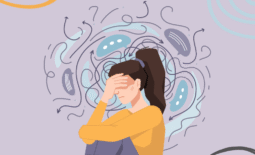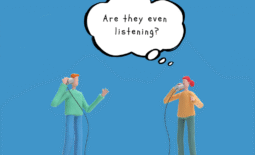Knowing When to Step Back: Why We Can’t Always Decide What’s Best for Someone Else
It’s natural to want the best for the people we care about—our friends, family, and loved ones. We want to see them happy, healthy, and thriving. However, in our eagerness to help, we often fall into the trap of thinking we know what’s best for them. This belief can lead us to try to control or influence their decisions, sometimes crossing boundaries and creating tension in our relationships. But the truth is, we don’t always know what’s best for others, even when we have the best intentions. Understanding why this is the case can help us become more supportive, compassionate, and respectful of the autonomy of those we care about.
- Everyone Has a Unique Perspective and Life Experience:
One of the primary reasons we don’t always know what’s best for others is that each person has a unique perspective shaped by their life experiences, values, and beliefs. What works for us or what we believe is the “right” path may not resonate with someone else who has had different experiences. For example, a career choice that seems perfect to us might not align with the dreams and passions of a loved one. Our suggestions, however well-intentioned, can sometimes overlook their personal goals, values, or circumstances that we may not fully understand.
- The Limitations of Our Own Biases:
We all have biases, even when we don’t realize it. These biases can cloud our judgment when we think about what’s best for someone else. Our advice and opinions are often filtered through our own experiences, fears, and desires. For instance, if we fear instability, we might discourage a loved one from taking a risk that could be incredibly rewarding for them. Our biases can cause us to project our own anxieties and preferences onto others, leading to advice that reflects our own fears rather than their potential for growth.
- The Importance of Personal Autonomy:
Autonomy is a fundamental human need. Each person deserves the right to make their own choices and learn from their experiences. When we assume we know what’s best, we inadvertently undermine their autonomy, making them feel controlled or disempowered. This can damage relationships and lead to resentment. True support involves recognizing when to step back and allow others the freedom to navigate their own lives, even if we would choose differently for them. It’s about respecting their ability to make decisions, even when we don’t agree with them. It’s also about not thinking we don’t have all the answers, and even when we think we know “for certain” what they should do or not do, how can we know? We cannot see the future nor think of every possible variable or outcome. It’s humbling to detach from being “in charge” of the universe.
- Growth Comes Through Personal Experience:
Part of the journey of life is making choices, experiencing consequences, and learning from them. When we step in and try to direct someone else’s life, we may deprive them of the opportunity to grow through their own experiences. It’s through facing challenges, making mistakes, and finding solutions that people develop resilience, self-reliance, and wisdom. While it’s painful to watch a loved one struggle, those experiences can be essential for their personal development. Trusting their process and being there to support rather than direct is often the best thing we can do.
- The Risk of Codependency and Resentment:
When we believe we know what’s best for someone else, we risk fostering codependent relationships, where one person becomes overly reliant on the other for guidance and decision-making. This dynamic can lead to frustration and resentment on both sides—the person offering the advice may feel unappreciated or stressed by the responsibility, while the person receiving it may feel controlled or undervalued. Healthy relationships thrive on mutual respect and independence, where both parties feel empowered to make their own decisions.
- Supporting Without Controlling: How to Show Genuine Care:
So, how can we show care and support without assuming we know best? The key is to listen more than we speak, offer support rather than solutions, and provide a safe space for our loved ones to express themselves without judgment. Asking open-ended questions like, “What do you think is the best course of action?” or “How can I support you in this decision?” helps to empower others, reinforcing their autonomy and encouraging them to trust their own judgment.
While it’s natural to want to help those we care about, it’s essential to remember that we don’t always know what’s best for them. Everyone has their own path to walk, shaped by their unique experiences, values, and needs. By respecting their autonomy, acknowledging our biases, and supporting them without trying to control their choices, we foster healthier, more empowering relationships. Let’s strive to be compassionate companions on their journey, offering love and support without assuming we have all the answers. This approach not only strengthens our relationships but also helps those we care about grow into their fullest, most authentic selves.




